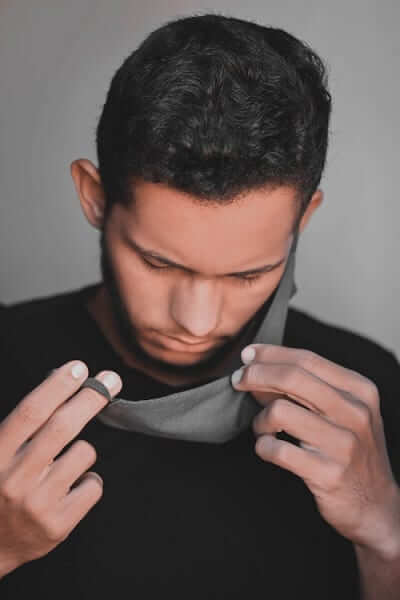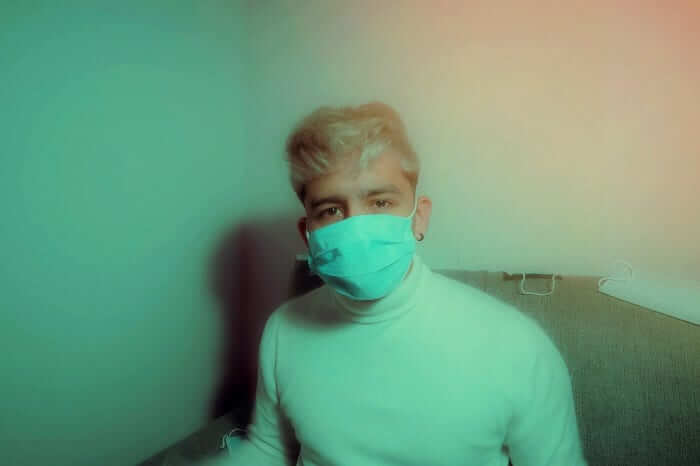
While an overwhelming wave of positive COVID-19 tests envelops us, people across the country must take strict precautionary measures in order to avoid spreading the infection. Some people have been hospitalised with serious symptoms while others have been advised home care and isolation. The latter includes mild cases of people who have tested positive for the novel virus, those who are asymptomatic or show benign symptoms.
READ ALSO: Khadi masks, anyone?
Before you test
It is alright to suspect that you might be infected if you have a fever for no reason or if you experience a sore throat, headache, or shortness of breath. At once, isolate yourself from your family; secondly, consult your doctor and found out if they recommend a test. The rationale behind this is, if you test positive, the likelihood of infection transmission is high in the period immediately before and after the test.
Fortunately, if you test negative, there are still caveats here that your doctor can guide you through. You might want to test after symptom onset, to ensure that the likelihood of the false negative is avoided. Testing at the right time is crucial.
After testing positive
Empty or move out things that others may need as you begin to occupy the room. Objects may be permitted to enter the room but cannot be allowed to leave again during the period of isolation. It is best to prepare yourself with the following:
- Limited inventory of personal clothes
- Few but needed cutlery, plates and cups
- Washing powder or liquid
- Washing liquid for vessels
- Disinfectant wipes and sanitiser
- Personal toiletries
- Toilet cleaning liquid
- Rubbish bin
Get yourself into a routine. Don’t count the days until you can leave your isolation chamber. Be glad that you are doing an immense amount of good to your loved ones by isolating. Rotate what you do, so that you aren’t bored. If you have a hobby this would be the perfect time to indulge in it.
In the first week of illness, you must go easy, especially if you are above the age of 40; you will tend to tire out easily. You could experience some anxiety. Video call friends or family, it will help you feel less like you’re alone.
READ ALSO: Grandparent-grandchildren video calls are vital during COVID-19

Medical monitoring: It is likely you will have medical guidance regarding treatment. Recommended monitoring includes checking temperatures of fevers, pulse rates and oxygen saturation. For medication purposes, strictly follow what your doctor has prescribed- do not refer to the internet or what some groups may forward to you, trust your physician. Fevers can be erratic but do not fret. It’s tricky for non-medical folks; but there are frequency and thresholds to know; keep in constant touch with your doctor and share any uneasiness that you may feel, immediately.
Diet and food delivery: A well-balanced diet is important. Lots of fruits and vegetables along with adequate protein consumption is key. It is also recommended that you hydrate yourself regularly. It is also critical that you practice appropriate “infection control” when food is delivered. It would be beneficial to eat small and frequent meals with nuts. Loss of taste and smell can be an issue for some mild cases; keep yourself well hydrated throughout the day by drinking at least 2 litres of water.
Waste handling: Best left within the room in a basket. To empty the bag, drop into a second larger bag outside your isolation quarters and use wipes to disinfect.
2nd week: Will likely become easier as the illness wanes with relatively better energy. Not a sign to stretch our energy or step out but more cerebral work and work engagements with calls and emails helps
After recovery: Testing is not recommended for mild cases. But you can still choose to get tested. Get rid of the toiletries, put your clothes and bed linen in a disinfectant before washing, do a surface cleaning of the floor, contact surfaces, and the bathroom. You might want to do it twice, just to be on the safer side. Sun-dry the pillows and cushions and leave the room well aerated for a couple of days. Let the virus die a natural death.
READ ALSO: Dine in or walk away? How to tell if a venue is COVID Safe in NSW




